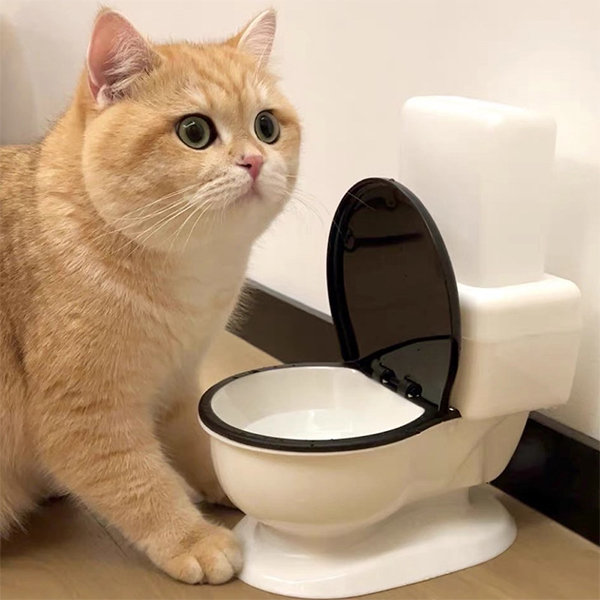Just about everyone has got their own thinking in relation to Can You Flush Cat Poo or Litter Down the Toilet?.

Intro
As pet cat proprietors, it's essential to be mindful of exactly how we get rid of our feline pals' waste. While it may appear hassle-free to purge feline poop down the bathroom, this method can have harmful repercussions for both the atmosphere and human health.
Alternatives to Flushing
Fortunately, there are safer and more responsible ways to dispose of cat poop. Take into consideration the adhering to choices:
1. Scoop and Dispose in Trash
The most common method of dealing with cat poop is to scoop it right into a naturally degradable bag and throw it in the trash. Be sure to use a committed clutter scoop and deal with the waste promptly.
2. Usage Biodegradable Litter
Select naturally degradable cat clutter made from products such as corn or wheat. These litters are eco-friendly and can be securely dealt with in the garbage.
3. Bury in the Yard
If you have a lawn, take into consideration burying feline waste in a designated area far from veggie yards and water sources. Be sure to dig deep adequate to prevent contamination of groundwater.
4. Install a Pet Waste Disposal System
Purchase a pet dog waste disposal system particularly made for cat waste. These systems utilize enzymes to break down the waste, minimizing smell and ecological impact.
Health and wellness Risks
Along with ecological concerns, flushing feline waste can also posture health and wellness threats to people. Pet cat feces may contain Toxoplasma gondii, a parasite that can trigger toxoplasmosis-- a possibly severe disease, specifically for expectant women and people with damaged immune systems.
Ecological Impact
Flushing feline poop presents harmful pathogens and parasites into the supply of water, presenting a substantial threat to marine ecosystems. These contaminants can negatively impact marine life and compromise water quality.
Conclusion
Liable pet dog possession expands past giving food and shelter-- it also entails correct waste monitoring. By avoiding purging feline poop down the toilet and opting for different disposal techniques, we can lessen our environmental footprint and protect human health.
Why Can’t I Flush Cat Poop?
It Spreads a Parasite
Cats are frequently infected with a parasite called toxoplasma gondii. The parasite causes an infection called toxoplasmosis. It is usually harmless to cats. The parasite only uses cat poop as a host for its eggs. Otherwise, the cat’s immune system usually keeps the infection at low enough levels to maintain its own health. But it does not stop the develop of eggs. These eggs are tiny and surprisingly tough. They may survive for a year before they begin to grow. But that’s the problem.
Our wastewater system is not designed to deal with toxoplasmosis eggs. Instead, most eggs will flush from your toilet into sewers and wastewater management plants. After the sewage is treated for many other harmful things in it, it is typically released into local rivers, lakes, or oceans. Here, the toxoplasmosis eggs can find new hosts, including starfish, crabs, otters, and many other wildlife. For many, this is a significant risk to their health. Toxoplasmosis can also end up infecting water sources that are important for agriculture, which means our deer, pigs, and sheep can get infected too.
Is There Risk to Humans?
There can be a risk to human life from flushing cat poop down the toilet. If you do so, the parasites from your cat’s poop can end up in shellfish, game animals, or livestock. If this meat is then served raw or undercooked, the people who eat it can get sick.
In fact, according to the CDC, 40 million people in the United States are infected with toxoplasma gondii. They get it from exposure to infected seafood, or from some kind of cat poop contamination, like drinking from a stream that is contaminated or touching anything that has come into contact with cat poop. That includes just cleaning a cat litter box.
Most people who get infected with these parasites will not develop any symptoms. However, for pregnant women or for those with compromised immune systems, the parasite can cause severe health problems.
How to Handle Cat Poop
The best way to handle cat poop is actually to clean the box more often. The eggs that the parasite sheds will not become active until one to five days after the cat poops. That means that if you clean daily, you’re much less likely to come into direct contact with infectious eggs.
That said, always dispose of cat poop in the garbage and not down the toilet. Wash your hands before and after you clean the litter box, and bring the bag of poop right outside to your garbage bins.
https://trenchlesssolutionsusa.com/why-cant-i-flush-cat-poop/

We had been shown that write-up about Can You Flush Cat Poo or Litter Down the Toilet? through a good friend on a different website. Do you know another individual who is looking into the subject? Take a moment to promote it. I am grateful for your time. Visit again soon.
Information Here